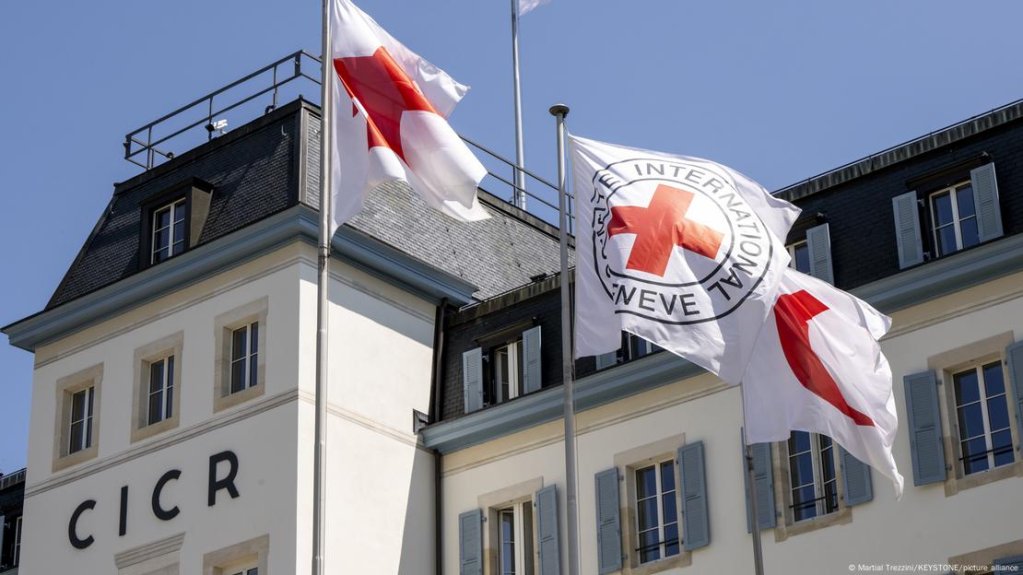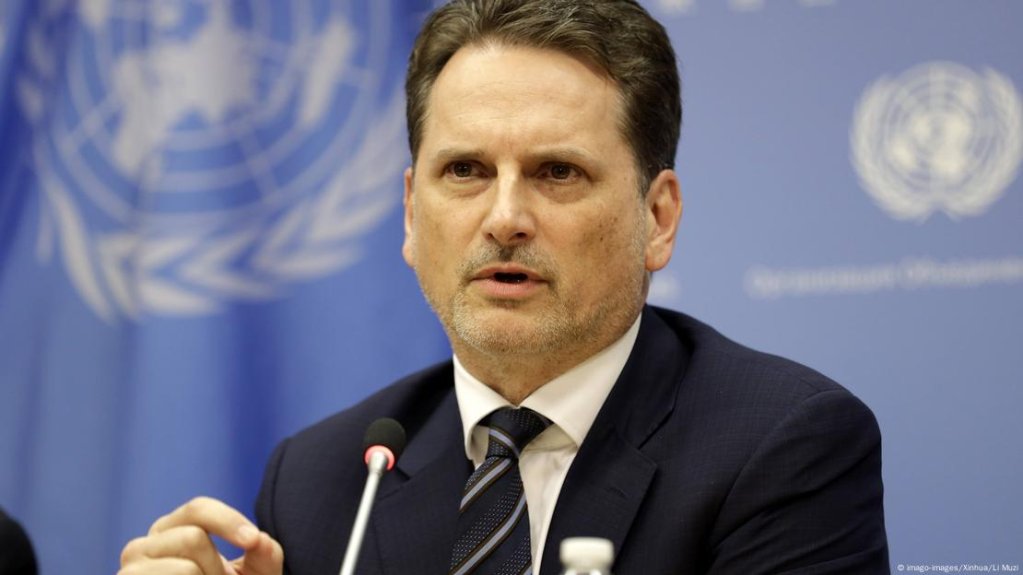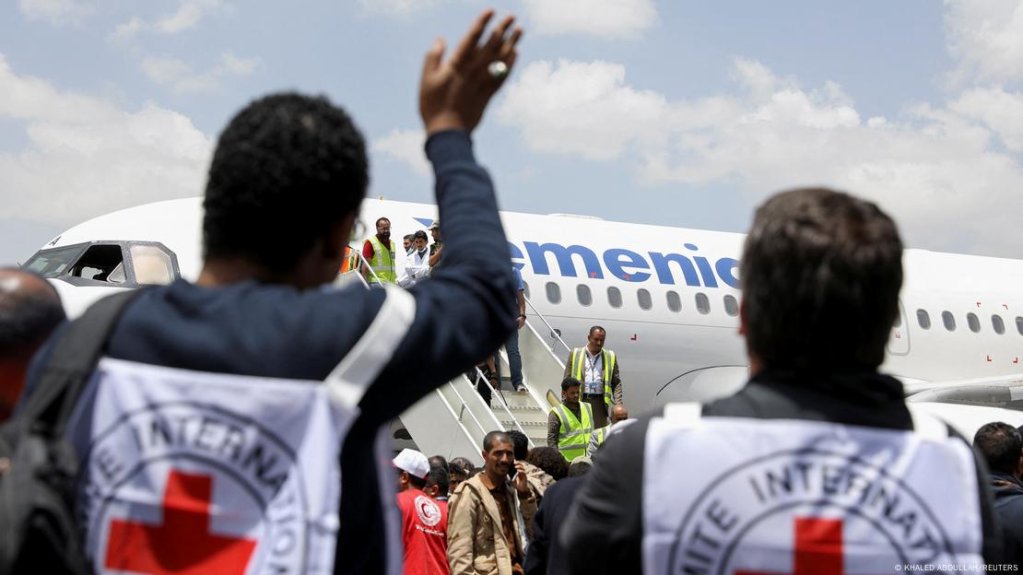The International Committee of the Red Cross (ICRC) said that more than a quarter of a million people were registered as missing around the world, marking an increase of nearly 70 percent over five years. The organization added that the increase was driven by growing numbers of conflicts and mass migration as well as what it broadly referred to as fading respect for international rules of engagement in war.
According to numbers released on August 29, 2025, some 284,400 people were registered as missing at the end of 2024 by the Family Links Network, run by the ICRC. Compared to 2019, this is an increase of 68 percent.
"From Sudan to Ukraine, from Syria to Colombia, the trend is clear: the surging number of missing persons provides a stark reminder that conflict parties and those who support them are failing to protect people during war," ICRC director-general Pierre Krähenbühl said upon the release of the latest figures, adding that this was "only the tip of the iceberg."
"The tragedy of the missing is not inevitable. With stronger measures to prevent separation, protect those in detention and properly manage the dead, countless families could be spared a lifetime of anguish," Krähenbühl added.
"Behind every number is a mother, father, child or sibling whose absence leaves a wound that statistics cannot capture."
The real number of missing people around the world due to conflict meanwhile is thought to be much higher, as the ICRC only cites the number of cases registered directly with one of its offices.

Read AlsoRed Cross: 'When a person disappears, life is frozen in many ways'
Sudan, Ukraine and Gaza: Missing but not forgotten
According to the ICRC, governments and other parties in armed conflicts worldwide should be held accountable to prevent such disappearances, and also invest into clarifying the fates of missing people.
In the statement, the ICRC highlighted that in its view, "(h)ow states respond to missing persons cases can shape societies long after violence ends, influencing peace-building, reconciliation and the ability of communities to heal," it said, stressing the importance of upholding international humanitarian law in conflict situations.
The ICRC said that the chief reason for this major increase were the conflicts in Sudan, Ukraine and Gaza.
Read AlsoUNHCR: 120 million people displaced globally
ICRC, UNRWA and the ongoing war in Gaza
However, the ICRC itself has also come into criticism in recent months for not doing enough to help people in such situations; in particular, there was grave international concern about the role of the ICRC in the context of the war in Gaza and its lack of intervention to provide human support to Israeli hostages held by the Hamas Islamist terror group.
These allegations have also affected Krähenbühl directly: Prior to his current engagement as head of ICRC, Krähenbühl worked as the commissioner general of the controversial United Nations Relief and Works Agency for Palestine Refugees in the Near East (UNRWA) from 2014 to 2019; he was forced to resign from that position amid mounting allegations of mismanagement, some of which have since been verified.
In recent years, UNRWA has become caught up in allegations of tacitly helping Gazans associated with Hamas, by financing and supporting some of their operations while failing to help the Israeli Defense Force in identifying legitimate targets in the war.

Read AlsoWill the Hamas attacks trigger a new migration wave to Europe?
Waning respect for Geneva Conventions
The ICRC underscored the fact that upholding the Geneva Conventions, which were introduced as the international rules of engagement in war after the end of World War II, would prevent separations from families and missing people cases, adding that the respect for these rules was fading:
Under the Geneva Conventions, parties to a conflict are obliged to share information about detainees in a timely manner and also enable them to maintain contact with relatives.
They also include stipulations such as avoiding the separation of family members during the evacuation of civilians by an occupying power.
"With stronger measures to prevent separation, protect those in detention and properly manage the dead, countless families could be spared a lifetime of anguish," Krähenbühl added.
The ICRC also emphasized the fact that warring factions have a responsibility to uncover what exactly happened to each casualty of a conflict.
"The obligation to account for deceased enemy combatants likewise ensures that their fate is known to the families and they are not registered as missing," it said in its statement.

Read AlsoHumanitarian crises devastate communities worldwide 75 years after signing of Geneva Conventions
150 years of tracking missing people
According to the ICRC's own guidelines, a person is considered as missing as soon as a family member belonging to that individual registers that case with it. The organization has been tracking the whereabouts of people caught up in conflict for over 150 years now.
Cases remain open until families report that they have found their relative or if the Red Cross has direct reason to close a case — such as confirming that they unfortunately were killed.
"Everyone has the right to know the fate of their loved ones," the humanitarian group said.
The ICRC added that in the course of 2024, more than 16,000 missing people were located, with slightly less than half of them (7,000) actually being reunited with their families and loved ones.
However, not everyone gets their happy ending, as many others remain missing to this day.
Read AlsoOrganizations working to identify those who die at Europe's borders
with AFP, Reuters
